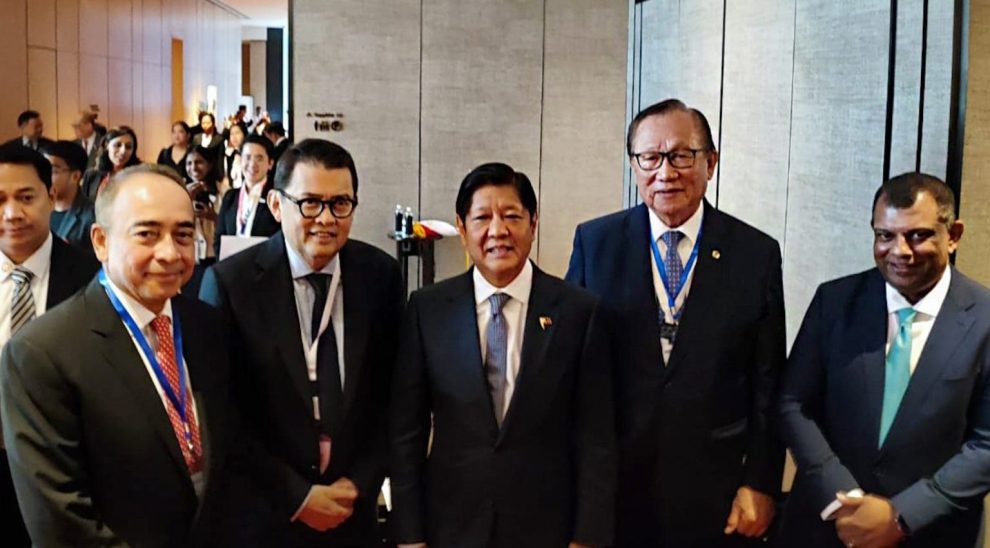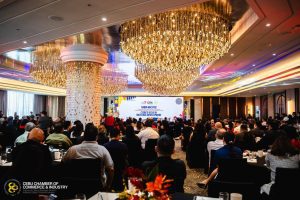Two private sector groups representing Malaysia and the Philippines signed a Memorandum of Understanding here last July 27, 2023 to explore joint efforts in agriculture development, focusing on palm oil, rubber and other agricultural commodities that may thrive in the Philippines and Malaysia. The MOU was signed on behalf of ASEAN Business Advisory Council (ASEAN BAC) Malaysia and ASEAN BAC Philippines by their respective Chairs, Tan Sri Nazir Razak and Joey Concepcion. The signing was witnessed by Philippines President Ferdinand Marcos Jr. during his meeting with Malaysian business leaders as part of his three-day State Visit to Malaysia.
The initiative will aim to replicate an agri model similar to Kapatid Angat Lahat sa Agri Program (KALAP) to achieve inclusive and sustainable agriculture through the integration of small farmers into the value chain of large companies, and allowing them to benefit from the transfer of technologies and economies of scale. KALAP is an initiative of Go Negosyo, the non-profit founded by Concepcion to promote entrepreneurship and advocate for the development of Filipino MSMEs.
“Public-private partnerships are essential as we move toward regional economic integration and make our agriculture industries productive and competitive,” said Concepcion. ”We have already several of these big-brother models in the Philippines covering prime commodities like tobacco, coconut and rice, with large Philippine companies like Universal Leaf, Lionheart Farms and Yovel East successfully implementing their inclusive models in the communities where they operate,” he said. Concepcion said they are aiming to encourage more big-brother companies to participate.
The MOU between the Philippines and Malaysia concerned specifically the possibility of jointly conducting studies and mentorship channels for potential agriculture, agriculture technology, food security, agripreneurship business models, and value chain development.
It will also aim to identify the business requirements to develop trade and investment opportunities in palm oil, rubber, fruits, poultry, agricultural technology, and other agricultural products and services of Malaysia and the Philippines. “We are confident, that with this partnership with ASEAN BAC Malaysia and the leadership of Chairman Nazir Razak, that both our countries will benefit from sharing our experiences in these areas,” said Concepcion.
Razak said that ASEAN-BAC Malaysia is happy to facilitate potential partnerships between prominent players in relevant fields from the two countries. “Food security is a major challenge for Malaysia, with imports of food accumulated to RM482.8 billion while our food export was only RM39 billion between 2012 to 2022,” said Razak. “Malaysia needs to not only reduce our food import bills but also become competitive in food agriculture,” he said.
Concepcion said he was elated that President Marcos was present to witness the signing, and vowed to continue in various efforts for MSMEs in the Philippines and in the region. Already, the ASEAN Mentorship for Entrepreneurs Network (AMEN), which is the Philippines’s legacy project from its chairmanship, has already been rolled out to the ten ASEAN member-states after securing funding from the Japan-ASEAN Integration Fund.
“With AMEN now ongoing and successful, we want to move a step further. We need to scale up our farmers, fix the land issues so that we achieve the minimum viable point of 24 hectares to achieve scale, and help farmers use technology and incorporate them into the value chain of big corporations while making sure they receive their equitable share,” he said.
Concepcion said that similar agreements will be explored with countries that have a strong agriculture industry, such as Indonesia, Vietnam, Thailand, Cambodia and possibly Myanmar.












